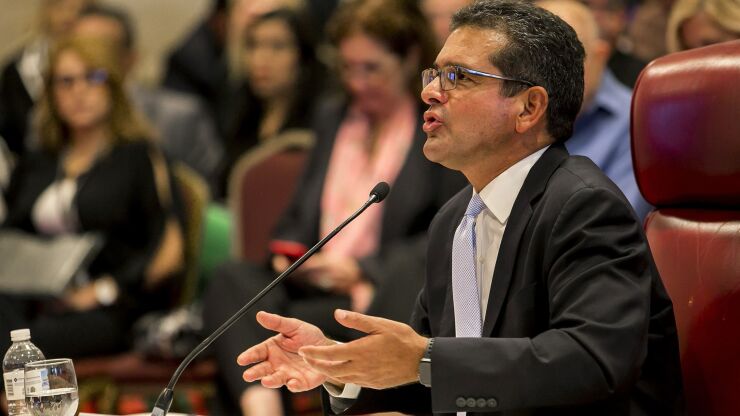A bill awaiting signing into law, which would overturn a 2017 labor law, is inconsistent with the Puerto Rico Oversight Board's fiscal plan, the board said, adding that if signed, it would attempt to stop implementation.
The board sent Gov. Pedro Pierluisi a warning Monday against the bill, which among other things, would “reduce economic growth and market competition, deprive the commonwealth of the revenues associated with such revenue growth,” and deter investment in Puerto Rico, it said.
Puerto Rico House Bill 1244, filed on March 6, is inconsistent with the board-approved fiscal plan for Puerto Rico and a PROMESA section bars the governor from signing the bill, according to the board's letter. If the governor signs it, the board reserved its rights under PROMESA to take action to prevent its implementation.

Six years after the passage of the Puerto Rico Oversight, Management, and Economic Stability Act, the letter is another example of the
The Puerto Rico Senate and House of Representatives have passed the bill and, on Thursday sent it to Pierluisi for his signature.
The bill would revert to three months the probationary period for new employees; reduce the number of hours required for a Christmas bonus; mandate sick and vacation day benefits for part-time employees; increase wrongful termination indemnity pay; and require employers to prove dismissals are justified.
The board should concentrate on economic growth "instead of curtailing labor benefits," said Heidi Calero, president of H. Calero Consulting. "The patient is dying and their only recipe is to focus on marginal issues.
“Puerto Rico’s problem of competitiveness is not labor laws, but the lack of executing an economic plan, albeit modest, but powerful enough to be detailed in its metrics and [a] person responsible for achieving these metrics,” Calero said.
In its letter, the board said, in early 2021 the
The board found the bill defeated the purpose of PROMESA and Pierluisi vetoed it and asked the legislature to reconsider its provisions.
The House and Senate have passed the new bill, which would “reestablish many of the burdensome labor restrictions that existed prior to the passage” of the 2017 labor law, the board's letter said.





